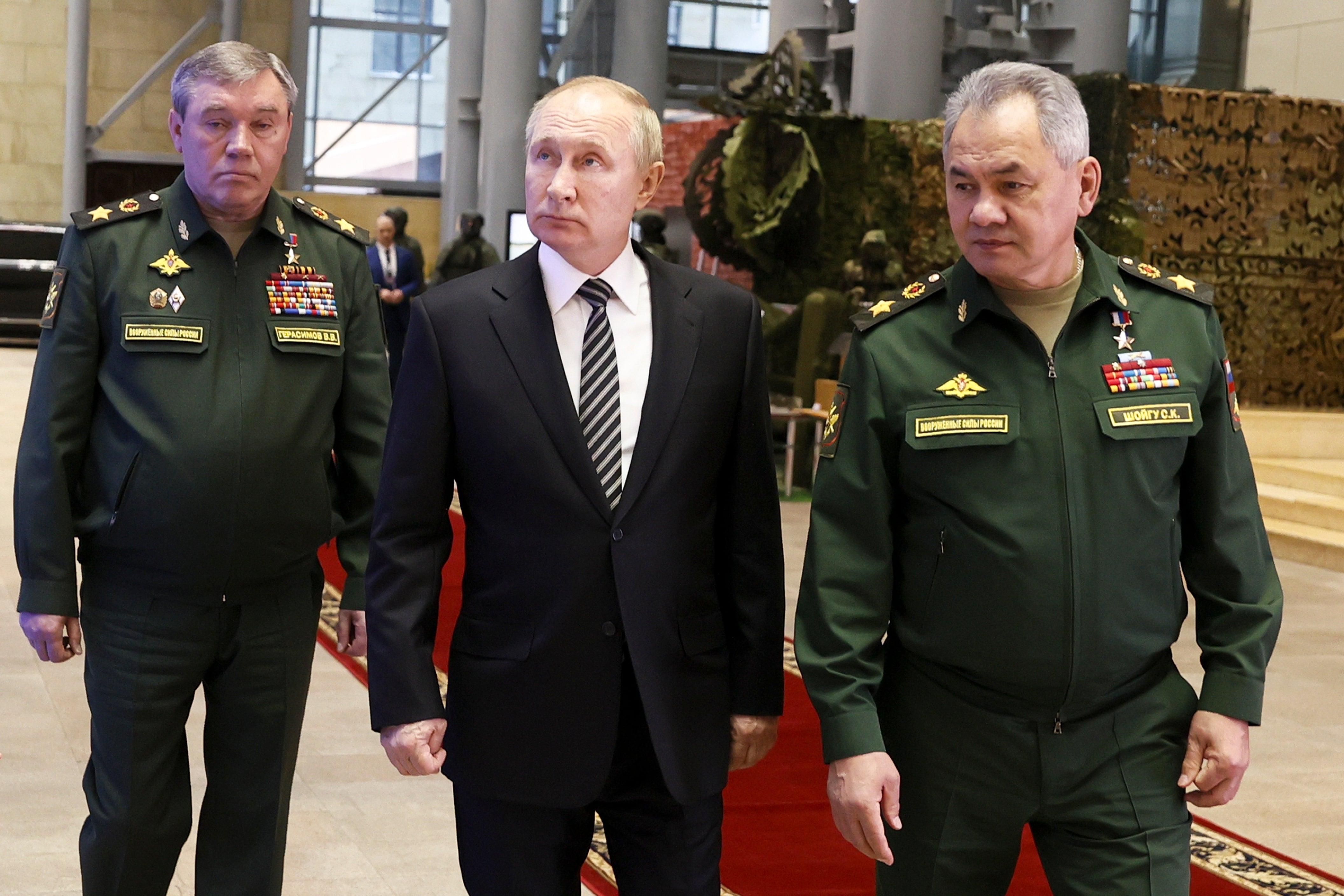The question of whether Ukraine will join Nato can – and must – wait
Editorial: Despite the success in Donetsk, this is a weak moment for Russia, and the West should ensure that Ukraine can take full advantage of it

The claim by the defence minister of Ukraine, Oleksii Reznikov, that his country has become a “de facto” member of Nato is, to borrow the diplomatic phrase, “unhelpful”.
He also thinks, perhaps fancifully, that Ukraine will join the alliance formally next year. That, too, is a distracting question. It is perfectly true, and very obvious, that Nato has offered considerable political support to Ukraine. It has also helped to coordinate the flow of materiel from individual member states and others (such as Finland, still not a formal member) to Ukraine since the Russian invasion last year.
However, the military assistance has tended to be “defensive”, including intelligence. Nato has been careful not to deploy its own troops of weaponry in its own livery. Member states – particularly the US – have also insisted that there should be no attacks on Russian sovereign territory.
So, Nato support has been limited and conditional in the way that it would not be if a signatory to the North Atlantic Treaty, such as Poland or Estonia, was attacked, in which case Article 5 – an attack on one is an attack on all – would kick in, and the retaliation would be swift, total and decisive. Mr Reznikov’s remarks tend to support Russia’s crude propaganda that it is being attacked by Nato.
Still, there are crucial questions of how much more and how Nato should support Ukraine as the war drags on. Fighting had died down after the last few successful Ukrainian counterattacks in the east, but the claimed capture of the salt-mining centre of Soledar, in the Donetsk region, has come as a reminder that the war could escalate at any time, and threaten Ukraine’s survival. A build-up of Belarus forces along the northern border, with Kyiv not far away, is also causing concern.
The town of Soledar has some strategic value, with its network of mines and tunnels affording strong positions for troops. It is a base for further bombardment of Bakhmut and renewed Russian attacks by some 150,000 new recruits. The Wagner Group of mercenaries has said its forces were solely responsible for the success, something disputed by Russia, but at any rate, it’s a setback for President Zelensky and his people. So is the ceaseless bombing of civilian areas.
The question for Nato is how quickly to step up its support. Led by Germany, there has been some reluctance to move from sending defensive armaments – such as anti-missile defence systems or armoured personnel carriers – and towards items such as fighter planes and full-scale battle tanks; items conventionally used by an attacking force.
In Ukraine, the distinction is blurred because any action Ukraine takes to repel the invader, including strategic offensives, is in that sense an act of defence of its territory. Besides, if Ukraine is not allowed access to the best and most advanced of Western equipment, then it will be less able to counter Russia’s numerical advantage. The net result of that will be to prolong the war and the suffering, and, on balance, increase the chances of some sort of Russian victory or permanent occupation of Ukrainian lands. That, in turn, seriously undermines the security and confidence of Nato members to the east, including Germany, and the West as a whole.
Some figures in the Nato alliance, most prominently German chancellor Olaf Scholz, seem almost not to want to vanquish Russian forces (and, thus, drive Vladimir Putin out of power, which would surely follow). With adequate powerful weapons, such as modern German Leopard tanks – and some American and British ones – it will be impossible for Russia to prevail.
The recent reshuffle of generals demonstrates that the war is not proceeding as President Putin wishes, and the role of the Wagner Group generally shows how much the Kremlin depends on forces it doesn’t actually control. Nor is China’s economic support of Russia unlimited. Beijing has thus far not sent much (if any) military aid.
Despite the success in Donetsk, this is a weak moment for Russia, and the West should ensure that Ukraine can take full advantage of it. That means acting as the “arsenal of freedom”. Parenthetically, it does not mean freelancing interventions in Kyiv by Boris Johnson, which will serve only to undermine the British government’s authority and confuse the Western stance.
As the first anniversary of Putin’s euphemistically-labelled “special military operation” approaches, it is plain that it has failed badly, in its then-stated ambition, of a swift “liberation” of Ukraine and its smooth integration with Russia. That will never happen – especially after the brutality shown by President Putin’s forces and the behaviour of his troops and the mercenaries.
It has been a pitiless conflict. The sooner it is ended, and Ukraine restored, the better. Whether that means Ukraine becomes a de facto member of Nato can wait.






Join our commenting forum
Join thought-provoking conversations, follow other Independent readers and see their replies
Comments